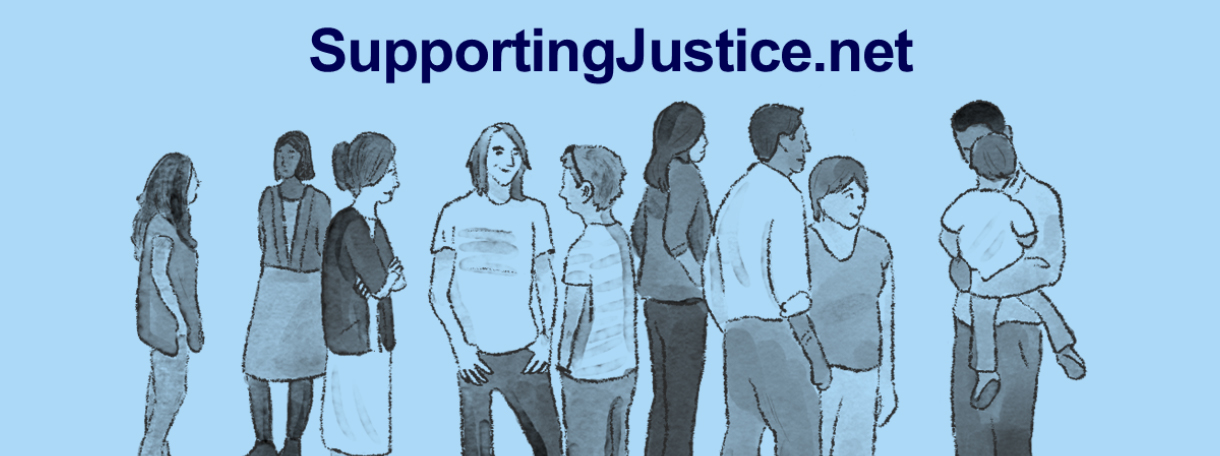
New online initiative to support people with intellectual disabilities in the criminal justice system
RMIT’s Centre for Innovative Justice (CIJ) has created a critical new online resource designed to help people with cognitive impairment and intellectual disabilities receive fairer treatment in Victoria’s criminal justice system.
Supportingjustice.net was launched virtually by Victorian Minister for Disability, Ageing and Carers, Luke Donnellan, and CIJ Director Rob Hulls on Tuesday 26 May.
This critical new resource has been designed with input from people with disability and lived experience of the criminal justice system to help transform the way people with disability are treated in the court system.
CIJ Associate Director, Research, Innovation and Reform Stan Winford said while people with a disability are over-represented in our criminal justice system, they are rarely recognised or responded to appropriately and on the whole are under-supported.
“The primary focus of the Supporting Justice website is to help lawyers and court professionals learn how to recognise the signs of disability in the first instance, gain an understanding of the criminal justice system experience of people with a disability, and offer appropriate needs-based support that will ultimately lead to fairer outcomes,” Winford said.
The website provides practical resources for lawyers, judicial officers and court professionals to better respond to people with autism spectrum disorder, cognitive impairment, intellectual disability and dual disability.
It also connects support workers, people with disability and their carers with resources to help with seeking legal advice, preparing for court and getting support while at court.
People with a cognitive impairment are severely over-represented in the criminal justice system. One study by Corrections Victoria, for example, found 42% of male prisoners and 33% of female prisoners have an acquired brain injury. This compares to less than 3% of the general population.
Minister Donnellan said it was important that people with disability get the support they need at the right time, especially people who may come into contact with the police, courts or forensic services.
“We’re working hard to improve outcomes for people with disability interacting with the justice system and to strengthen our disability advocacy sector,” he said.
The website is part of the broader Supporting Justice program - a systems change project which works with people with lived experience, as well as key stakeholders. to improve the justice system's responses to mental health and disability.
CIJ Senior Adviser, Research and Advocacy, Justice and Disability Michael Haralambous said the program is unique in that it brings people with disability to the centre of the process and ensures their voices are heard in relation to justice system reform.
“The project team drew in a broad cross-section of court and legal professionals, disability justice workers, as well as people with disability and lived experience of the justice system, to inform every stage of the website’s design and development,” Haralambous said.
The Supporting Justice website builds on the 2017 Enabling Justice project - a partnership between CIJ and the Jesuit Social Services, which explored and identified ways to address the over-incarceration of people with acquired brain injuries.
The official launch of Supportingjustice.net was followed by an online panel discussion about the current issues for people with disability in the criminal justice system.
The panel featured:
- Magistrate Pauline Spencer, Coordinating Magistrate Court Support Services
- Dorothy Armstrong, Self-Advocate and Victorian Disability Award winner
- Stan Winford, CIJ Associate Director
- Emily Piggott, Advocacy Coordinator at VALID - Victorian Advocacy League for Individuals with Disability
For media enquiries, contact RMIT Communications: 0439 704 077 or news@rmit.edu.au
About the Centre for Innovative Justice
- The Centre for Innovative Justice is located in RMIT’s Social Innovation Hub. It researches, advocates and applies innovative ways to improve the justice system with a particular focus on therapeutic jurisprudence, restorative justice and non-adversarial dispute resolution.
Acknowledgement of Country
RMIT University acknowledges the people of the Woi wurrung and Boon wurrung language groups of the eastern Kulin Nation on whose unceded lands we conduct the business of the University. RMIT University respectfully acknowledges their Ancestors and Elders, past and present. RMIT also acknowledges the Traditional Custodians and their Ancestors of the lands and waters across Australia where we conduct our business - Artwork 'Sentient' by Hollie Johnson, Gunaikurnai and Monero Ngarigo.